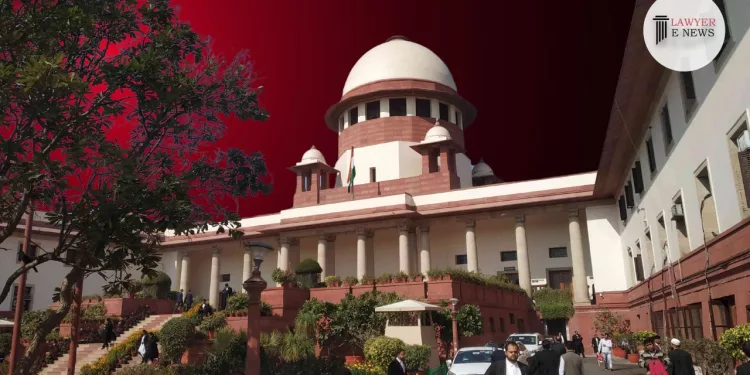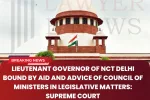Failure to Provide Written Grounds of Arrest Violates Fundamental Rights: Supreme Court Quashes Arrest Under UAPA

In a landmark judgment, the Supreme Court of India quashed the arrest and remand orders of Prabir Purkayastha, citing a breach of constitutional mandates due to the failure to provide written grounds of arrest. This decision underscores the essential requirement of informing arrested individuals of their grounds of arrest in writing, as per Article 22(1) of the Constitution and relevant statutory provisions. The judgment reinforces the sacrosanct nature of fundamental rights under Articles 20, 21, and 22 of the Constitution.
Facts and Issues
The appellant, Prabir Purkayastha, was arrested in connection with FIR No. 224/2023 dated August 17, 2023, registered under multiple sections of the Unlawful Activities (Prevention) Act, 1967 (UAPA), Indian Penal Code, and Prevention of Money Laundering Act, 2002 (PMLA). The appellant contended that he was not informed of the grounds of arrest in writing, and the remand proceedings were conducted without proper legal representation.
Court’s Assessment
Invalid Arrest and Remand Under UAPA: The Court emphasized the requirement to provide written grounds of arrest, stating, “Failure to provide written grounds of arrest constitutes a breach of fundamental rights under Article 22(1) of the Constitution.”
The arrest memo did not contain the specific grounds of arrest, making the arrest and subsequent remand illegal.
Violation of Fundamental Rights: The judgment reiterated, “The Right to Life and Personal Liberty is the most sacrosanct fundamental right guaranteed under Articles 20, 21, and 22 of the Constitution.”
The Court noted that the lack of written grounds hindered the appellant’s ability to seek legal counsel effectively and oppose the remand.
Legal Procedure and Interpretation of UAPA and PMLA: The Court applied the interpretation of Section 19(1) of PMLA to Section 43B(1) of UAPA, stating, “There is no significant difference in the statutory language requiring the communication of the grounds of arrest.”
The Court referenced its judgment in Pankaj Bansal v. Union of India, highlighting the necessity of written communication of arrest grounds for enabling effective legal recourse.
Decision The Supreme Court allowed the appeal, declaring the arrest and remand orders invalid. The appellant is to be released on bail upon furnishing bonds to the satisfaction of the trial court. The Court emphasized that these observations should not affect the merits of the ongoing case.
Date of Decision: 15th May 2024
Prabir Purkayastha vs. State (NCT of Delhi)






